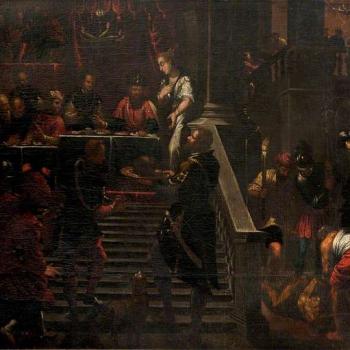Whenever I hear the term “Silent Night,” I don’t think of the hymn attributed to Martin Luther. A nativity scene isn’t the first thought in my mind. In fact, I don’t think of much of what we often associate with Christmas. I think of the period between December 23, 2018 and January 4, 2019; a very specific time in my life. I didn’t know it at the time, but it would be the beginning of the last four weeks of my very complicated and difficult first marriage.
My now late husband went into the hospital about a week earlier. He was unable to bend over and tie his shoes because his abdomen was too swollen. What we thought would be a visit for maybe a cold or bronchitis turned into a week-long stay. We discovered he had ascites, advanced cirrhosis, and possible liver cancer.
I picked him up on December 23. We waited for December 26 to arrive, as he would have a liver biopsy (done via a vein in his neck) to determine if he had cancer. They prescribed him warfarin for a blood clot in his liver. I was sick for the second time in a month (with what I now suspect was COVID-19). And in those days, those hours, there was a hushed, deafening silence. No one knew what to say. No one wanted to voice their fears, all of which came to pass. It was a long, dark, “silent” period that was completely contrary to festivity, merriment, and peace. It was dark, abiding silence that filled days that seemed to never end and masked grief that would advance too soon and then linger far too long.

We avoid “silent night”
Images of Christmas are seldom “silent,” even though we sing about it. Churches anticipate the largest crowds of the year. People prepare for company or travel. Commercials show bustling houses full of people and decorations. Advertisers provide “the secret” to the perfect Christmas: buy the right gift or use the right seasoning. We hear annoying Christmas songs on repeat (how many covers can we hear of the same song?). We complain about expectations at this time of year. “Merriment” is a noisy, disquieting experience.
We dislike silence. We don’t want a “silent night.” Most avoid it. After all, who wants an experience like I had? Why would anyone want to stay hushed? Who enjoys waiting for bad news?
Want it or not, many find the “silent night” experience too intense. We hear it in the phone that never rings from one’s relatives. The loss as friends move on to relationships and are no longer available to share life (at least not in the same way they did). The elderly individual who no longer has family to share in the season. Those who are rejected by their families, or for whatever complicated reasons exist, can’t visit or communicate with relatives. Those who are dying themselves or who are faced with death at this time of year. Changing relationships. Divorced circumstances that stand where family used to be.
So, people drown out silence with noise. The hurting are said to “bring down the party.” They’re told they don’t have the “Christmas spirit.” We give endless reasons as to why they are “wrong.” We don’t reach out to comfort. The goal? To avoid the discomfort silence brings. In the process, we forget people live with it, not just at holiday time, but all year.
Jesus breaks through our silence
The birth of Jesus Christ broke through a particularly dark, silent period in salvation history. It is not to say that between the Prophet Malachi and the announcement of Christ’s birth God did not speak or move among people. It is to say that the people of Israel found themselves occupied, scattered, and dealing with the complications of “silent darkness” as they went along. They weren’t apt to hear from God, perhaps for their own reasons: perhaps overcome with what their lives had become, or perhaps not knowing where to begin. They sat, waited, and hoped for some word, something to come that would break their “silent night,” lasting several hundred years.
The Word became flesh and made His dwelling among us. We have seen His glory, the glory of the one and only Son, Who came from the Father, full of grace and truth. (John 1:14, NIV)
The people didn’t just get any old word or revelation: they got the Word. The Word made flesh walked and dwelt among them. God wrapped in flesh came to live among them. And, just like God usually does things, Jesus’ presence in this world didn’t magically fix everything. Even though He was the Word-to-end-all-words, it didn’t break through the silence in salvation history to offer a distraction. No, Jesus didn’t come along and undo Israel’s Roman occupation (even though that’s exactly what they thought He should do). He didn’t fix every problem they had (much like He doesn’t erase all the ones we have now, either). Instead, He acknowledged their darkness and shined in the midst of it.
Light shines in the darkness
In Him was life, and that life was the light of all mankind. The light shines in the darkness, and the darkness has not overcome it. (John 1:4-5, NIV)
Jesus’ incarnation is an ultimate statement: God doesn’t always show up in the way we expect or to do what we might like. Instead, He shows up in silent, dark moments, when He is needed the most. He is there at this time of year, with those who wait, hope, and know to expect “silent nights.” Jesus doesn’t tell anyone to get in a “party mood. “He doesn’t believe buying the right things will soothe an echoing silence. There’s no noise to be found as the Word need not distract from Who He is and what He offers. Unobtrusive, Jesus just shines light in dark situations…on those that have no answer.
It’s no accident that at the time of year people seek distraction, Jesus offers comfort to those who have no distraction. In the silent midnight hour, Jesus is still there, today. The Light of the World still shines in darkness. Jesus comes, not with materialism, but humility. The Word made flesh fills our silence, brings us to one another, and teaches us that while the world makes noise, sometimes the deepest Word we need can be most profoundly heard in our deepest, darkest hours.














